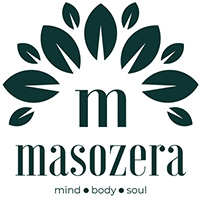On this week’s episode we sip and share with Leocadia Nkusinkabibi, a counselling therapist and the experience can best be described as a wholesome one.
The conversation began with addressing the why of it all. Our past two episodes have featured stories of trauma and healing and having left members of our community questioning mental health more than ever, it was only right to have a professional talk about it from a place of clarity.
Ms Nkusikabibi began our conversation with a simplified definition of trauma. She pointed out that trauma is a physic wound that affects the heart and mind, often originating from a sudden instance that leaves immense fear in its wake. Furthermore, she explained that trauma has a tendency to miss the surface and make a plunge to reprogram the brain to adjust to the near death experience one has encountered.
Trauma often manifests itself through anxiety, panic attacks, depression and other mental health disorders, and this also doubles as the mind’s attempt to communicate to the brain/person that something is off, and help is needed.
Some of the most prominent causes of trauma include rape and assault but trauma could also happen as a result of natural causes like floods or earthquakes, the common denominator being that during both occurrences the victim is rendered of all control.
To adequately portray an example of how impactful trauma can be, Ms Nkusikabibi shared a tragic experience that one of her patients went through. She was murdered not long after she had given birth and when she was found her newborn was sucking her lifeless nipple. With this pertinent example, Ms Nkusikabibi explained that the child’s trauma began there and furthermore explained how sensitive children are to their surroundings and how impactful it can be to their mental wellbeing, present and future.
“If a child is hugged, they will grow up feeling loved, and when the parents are not present they can also feel it. They pick up on positive energy and negative energy.” She says.
Upon being asked how the healing process commences, the counseling therapist is of the view that individual healing co exists with healing as a collective, simply because the world is no land for one man. She described personal evolution as individuation/independence and individuality. To the best of her knowledge, individuation or independence attributes to self-discovery and self-awareness, in the sense that this stage in life when you start figuring out what you like and what your hard no’s are, it’s the beginning of self-acceptance and in depth introspection. According to her, individuality’s side of the equation is that whatever inner battles and discoveries you’re experiencing don’t provide a hard pass from society and responsibility, and that is how healing becomes both collective and individual.
“When you stop fearing the pain, you face what is ready to be faced.” Says Ms Nkusikabibi.
Some of Ms Nkusikabibi tips and routines for wellness include saying a prayer, meditating, practicing Yoga and going for a walk every now and then.
In addition to this, she strongly recommends self appreciation as one of the ways to be consistently well. She says this could begin slowly and steadily with appreciating your eyes for everything they show you, appreciating your mind for getting you through your tasks for the day, appreciating the legs for carrying you around and so on. She strongly believes that is improves one’s self image and gradually molds the person into being, believing and feeling that they are enough not only for other but for themselves as well.
Join the conversation using #Sip&Share and if you enjoyed this episode, keep up with Wine down Wednesdays on our social media platforms and the Masozera Africa YouTube channel.

